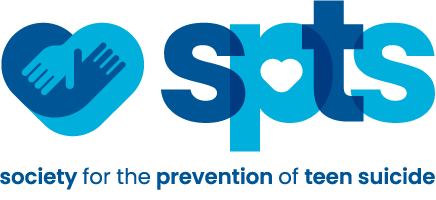Don’t programs in schools that talk about suicide make kids think about it?
No. School suicide prevention programs that approach the topic in factual, nonsensationalized ways can be effective suicide prevention tools. Since the 1980s, when school programs for suicide prevention were first put into place in a more systematic fashion, there has been a lot of confusion about this topic. Evaluation research done at that time pointed out the dangers of talking about suicide in the classroom in ways that glamorized or sensationalized the topic.
Some people misinterpreted this to mean that all school-based programs that addressed suicide directly were potentially dangerous. What we have since learned according to the Centers for Disease Control and Prevention is that students can in fact benefit from programs that present suicide in a factual way. Programs that address what we call “protective factors” that can mitigate against suicide are also helpful. Even in elementary school, for example, protective strategies can be enhanced through curricula that focus on social problem-solving skills, coping strategies, and the identification of trusted adult members of the child’s support system.
Right or wrong: There’s a student in my class who talks about suicide all the time. I think he just wants attention, so my inclination is to ignore it.
No. School suicide prevention programs that approach the topic in factual, nonsensationalized ways can be effective suicide prevention tools. Since the 1980s, when school programs for suicide prevention were first put into place in a more systematic fashion, there has been a lot of confusion about this topic. Evaluation research done at that time pointed out the dangers of talking about suicide in the classroom in ways that glamorized or sensationalized the topic.
Why do teachers need to know about suicide prevention? That’s not their job!
No. School suicide prevention programs that approach the topic in factual, nonsensationalized ways can be effective suicide prevention tools. Since the 1980s, when school programs for suicide prevention were first put into place in a more systematic fashion, there has been a lot of confusion about this topic. Evaluation research done at that time pointed out the dangers of talking about suicide in the classroom in ways that glamorized or sensationalized the topic.
I know there are local hotlines for suicide, but I’ve also seen “800” numbers listed. How can a hotline with an “800” number help me when I don’t even have a clue where it’s located?
No. School suicide prevention programs that approach the topic in factual, nonsensationalized ways can be effective suicide prevention tools. Since the 1980s, when school programs for suicide prevention were first put into place in a more systematic fashion, there has been a lot of confusion about this topic. Evaluation research done at that time pointed out the dangers of talking about suicide in the classroom in ways that glamorized or sensationalized the topic.
